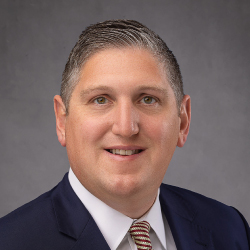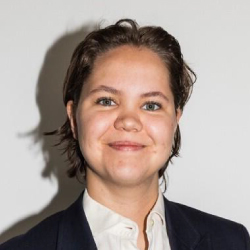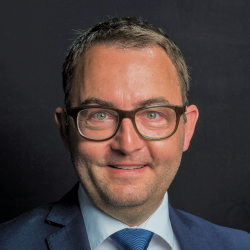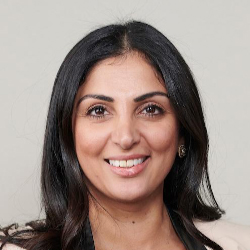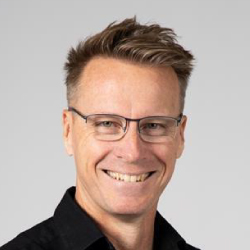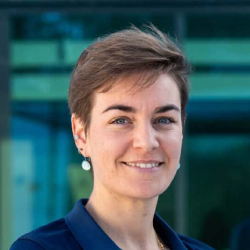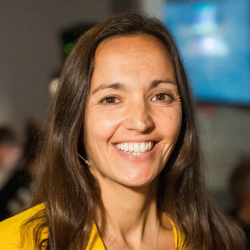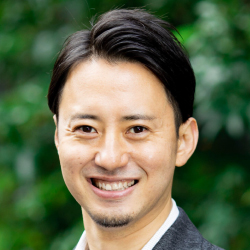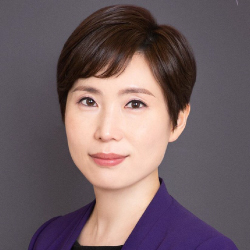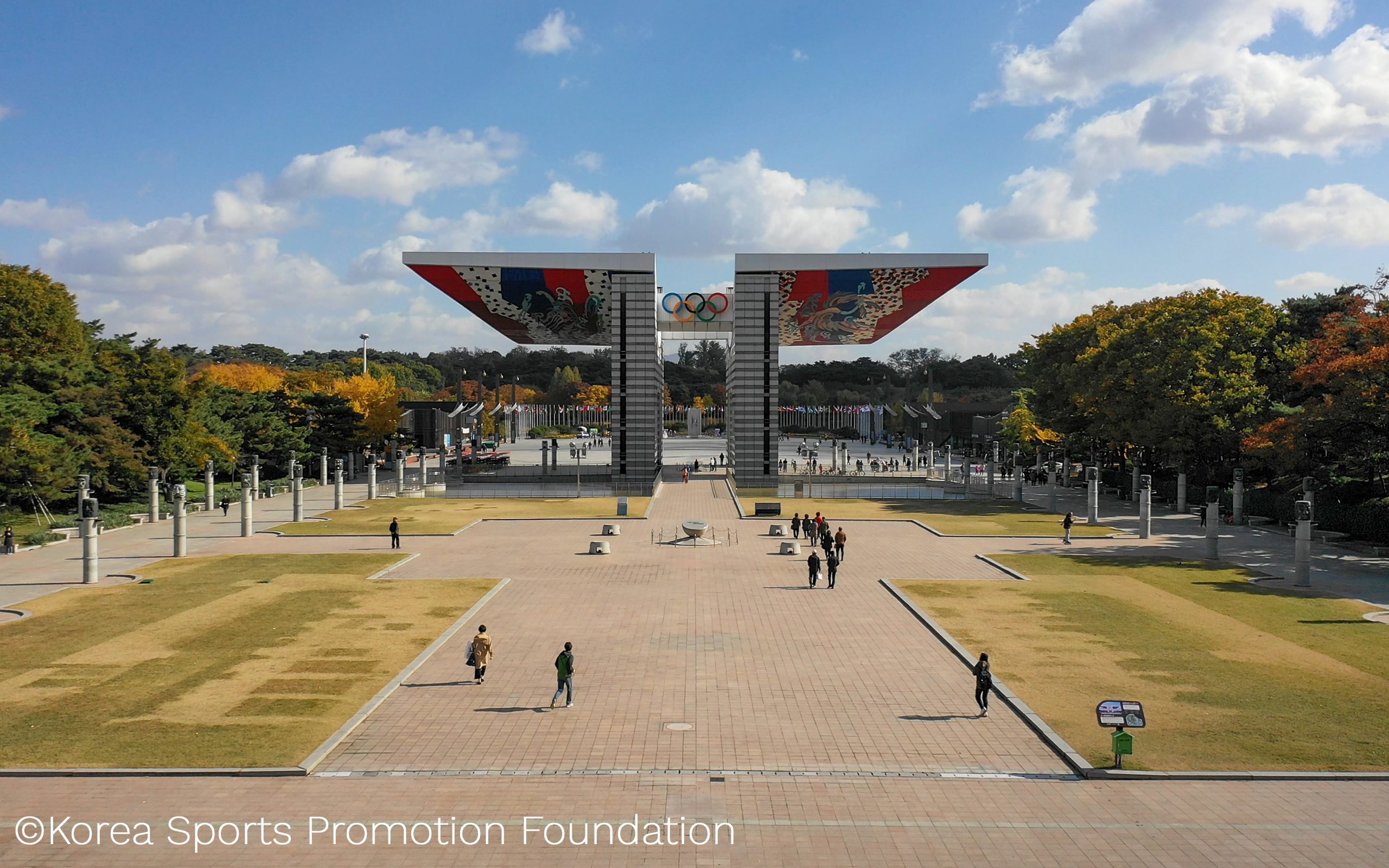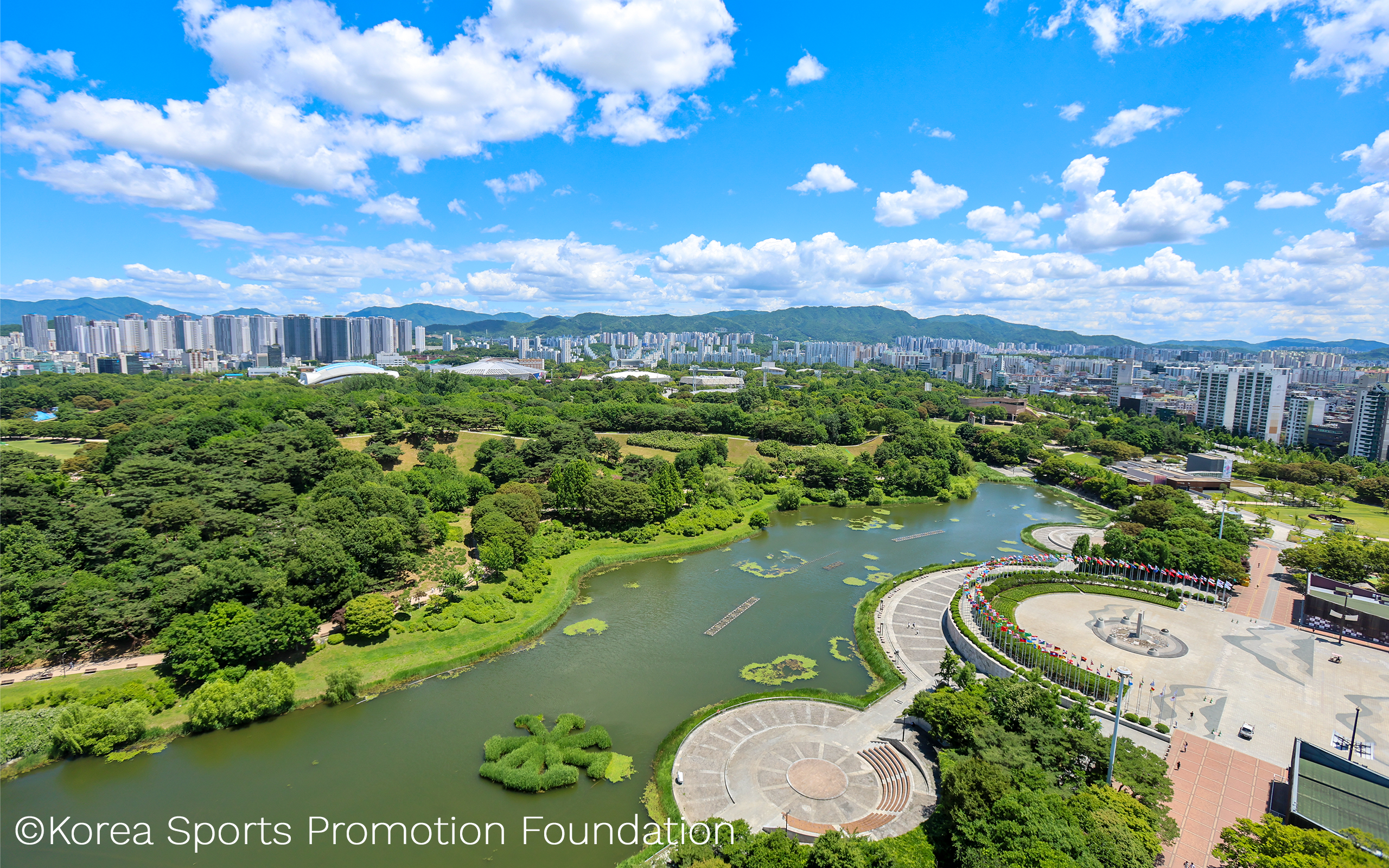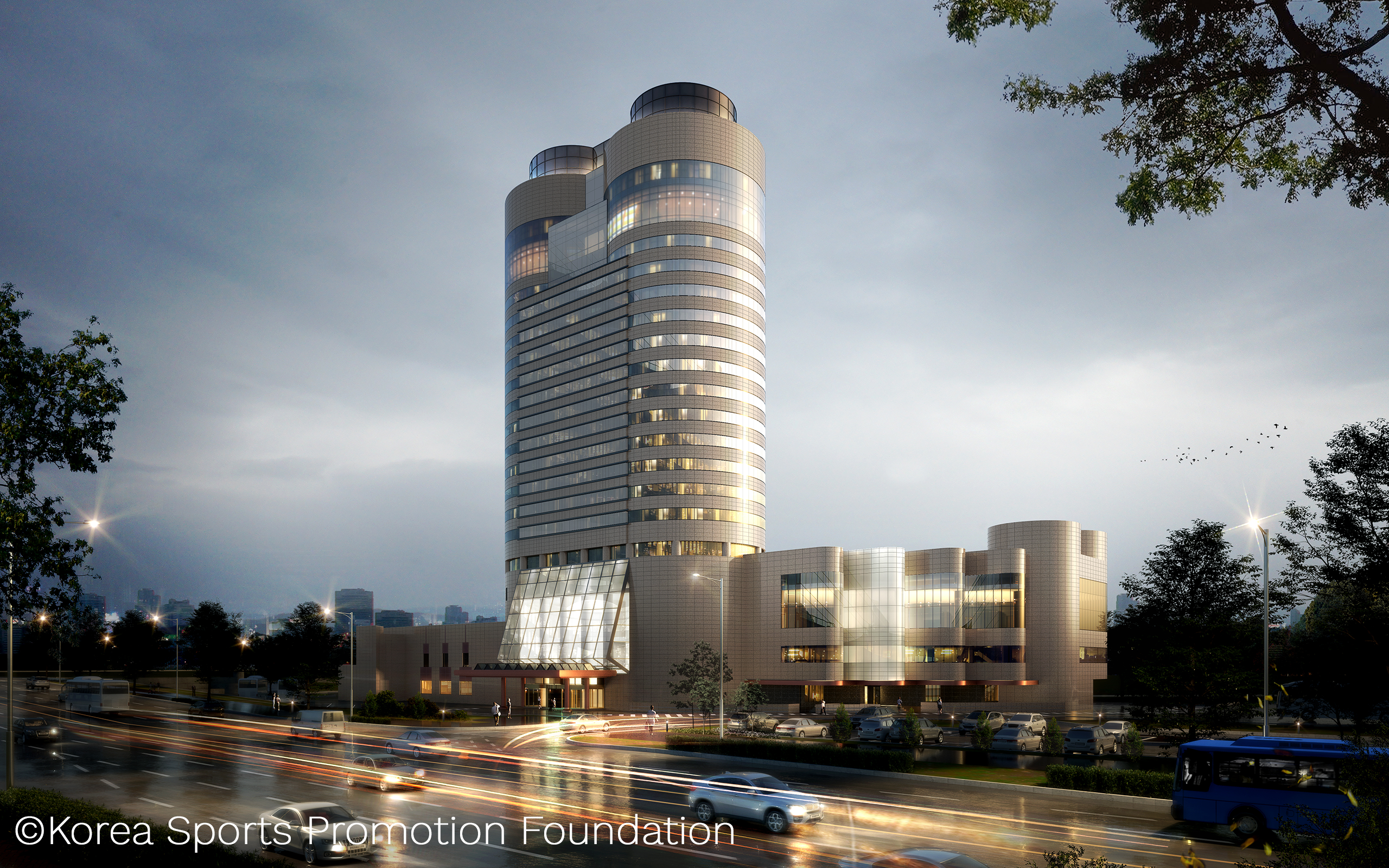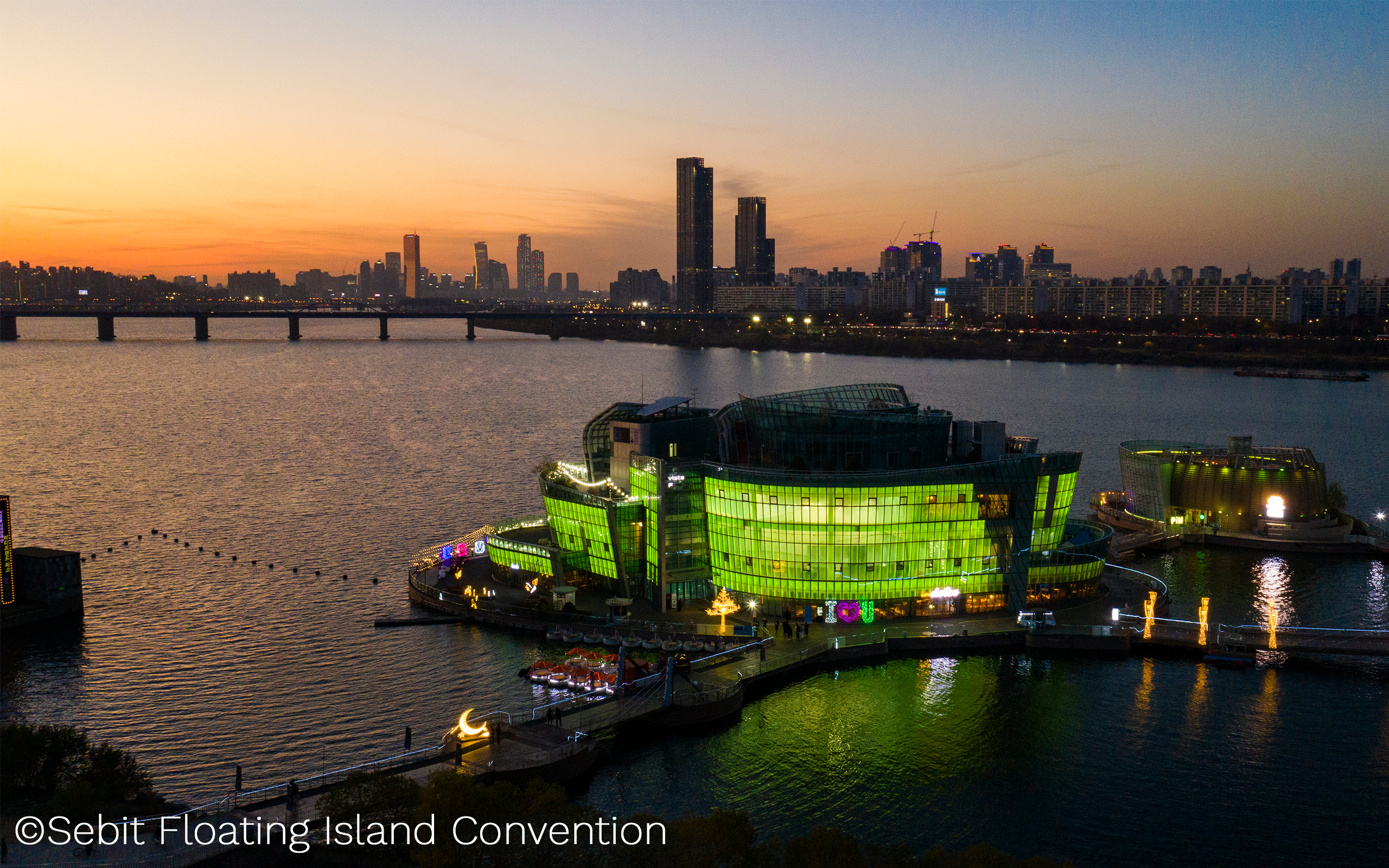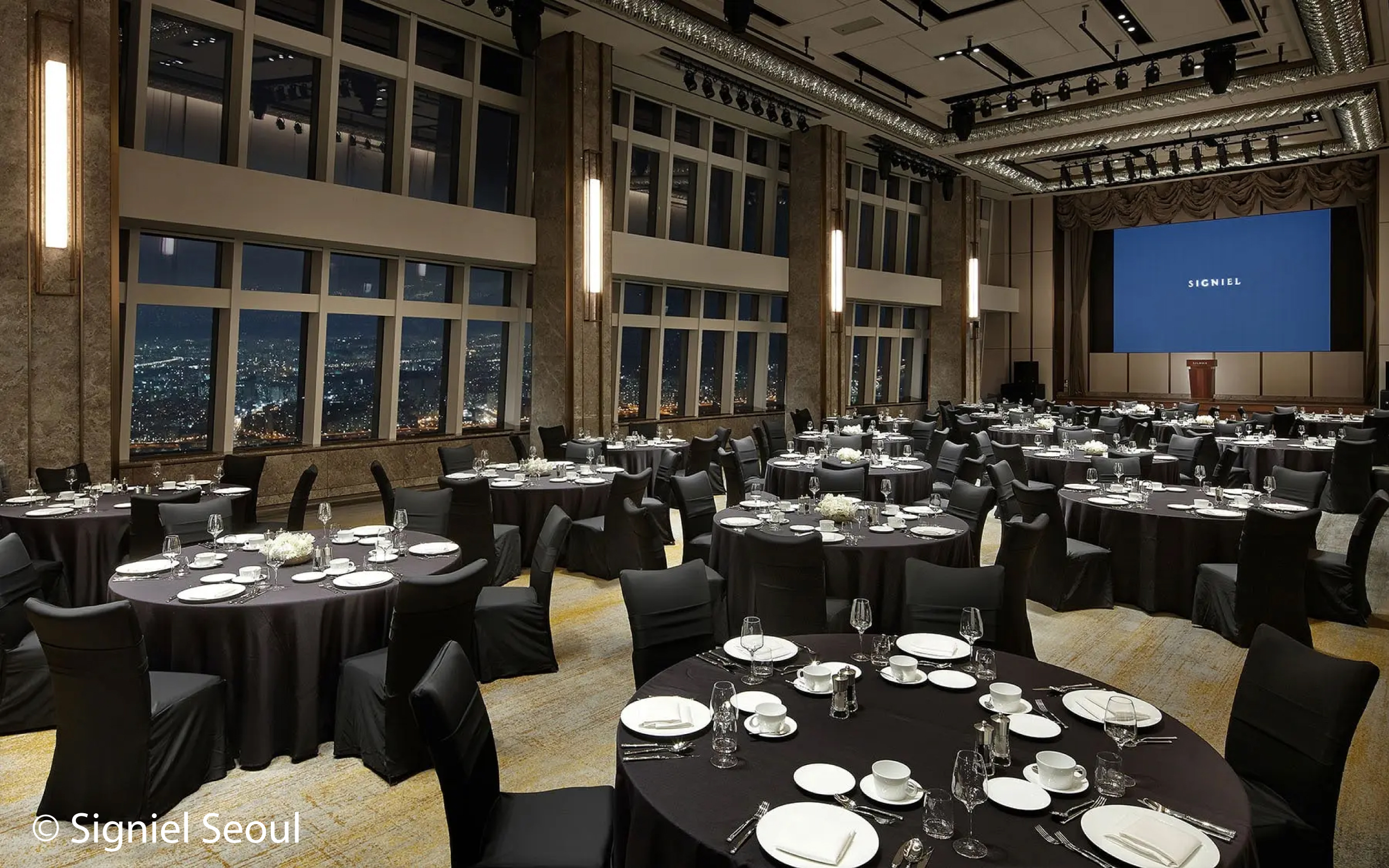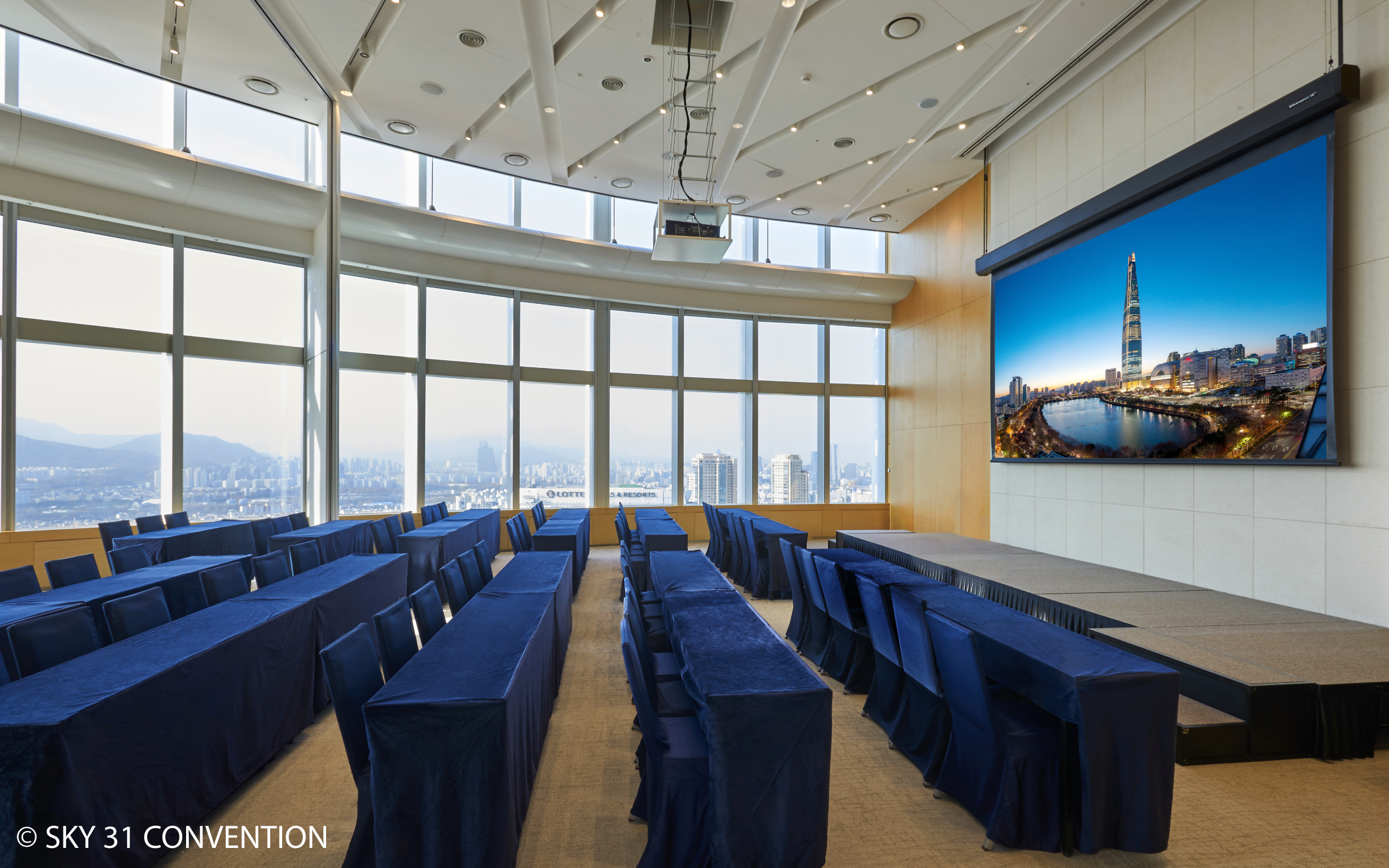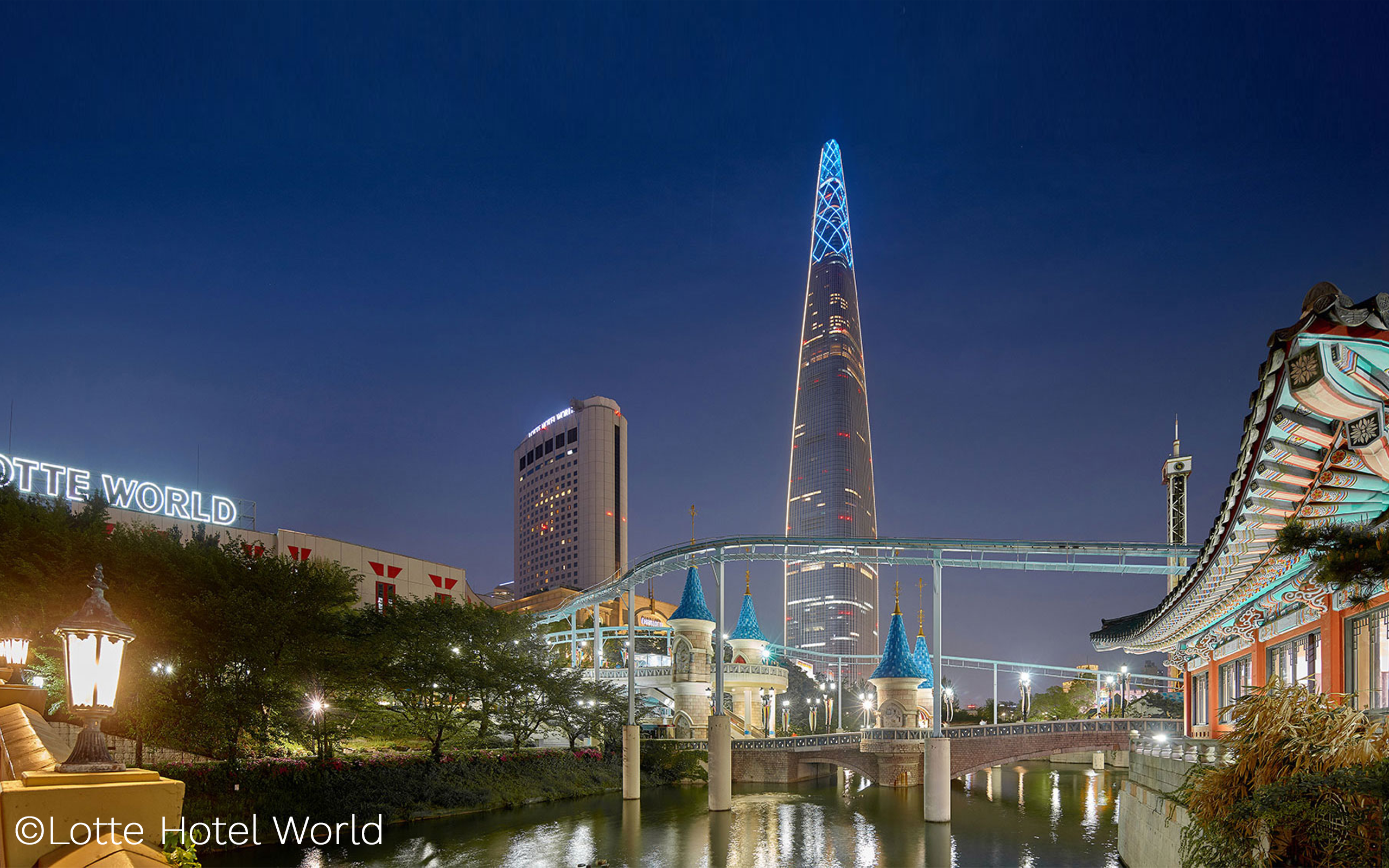summit 2025
Thank you for your participation!
we hope you enjoyed the experience – See you next year
in Lausanne, 16-18 november 2026
2025 summit
technology & sport: the e-volution
Focusing on technology in relation to sport and cities was a natural choice for this year’s conference in Seoul. The city, known for its creativity and “pali-pali” spirit, perfectly illustrated how innovation and citizen engagement can coexist in a smart urban environment.
The discussions explored how tech, AI, big data, IoT, and digitalisation are transforming sport and cities alike, highlighting both their potential and their limits. Particular attention was given to the rise of eSports and virtual sports, and the bridges they are building with traditional sport — creating new opportunities for participation, inclusion, and engagement. Smart venues and smart stadiums were also in focus, showcasing how technology can enhance fan experience, improve accessibility, and strengthen the connection between sport, communities, and the urban ecosystem.
The summit provided an invaluable opportunity to share insights, refresh perspectives, and exchange ideas on how technology can make cities smarter through sport.
ioc president kirsty coventry
Message to the smartcities & sport summit
Kirsty Coventry, the IOC President, couldn’t be present, but she shared a welcome message with the smartcities and sport summit participants, inviting them to fruitful discussions and meaningful connections.
Click here to watch all summit sessions videos and relive the 2025 smartcities & sport summit!
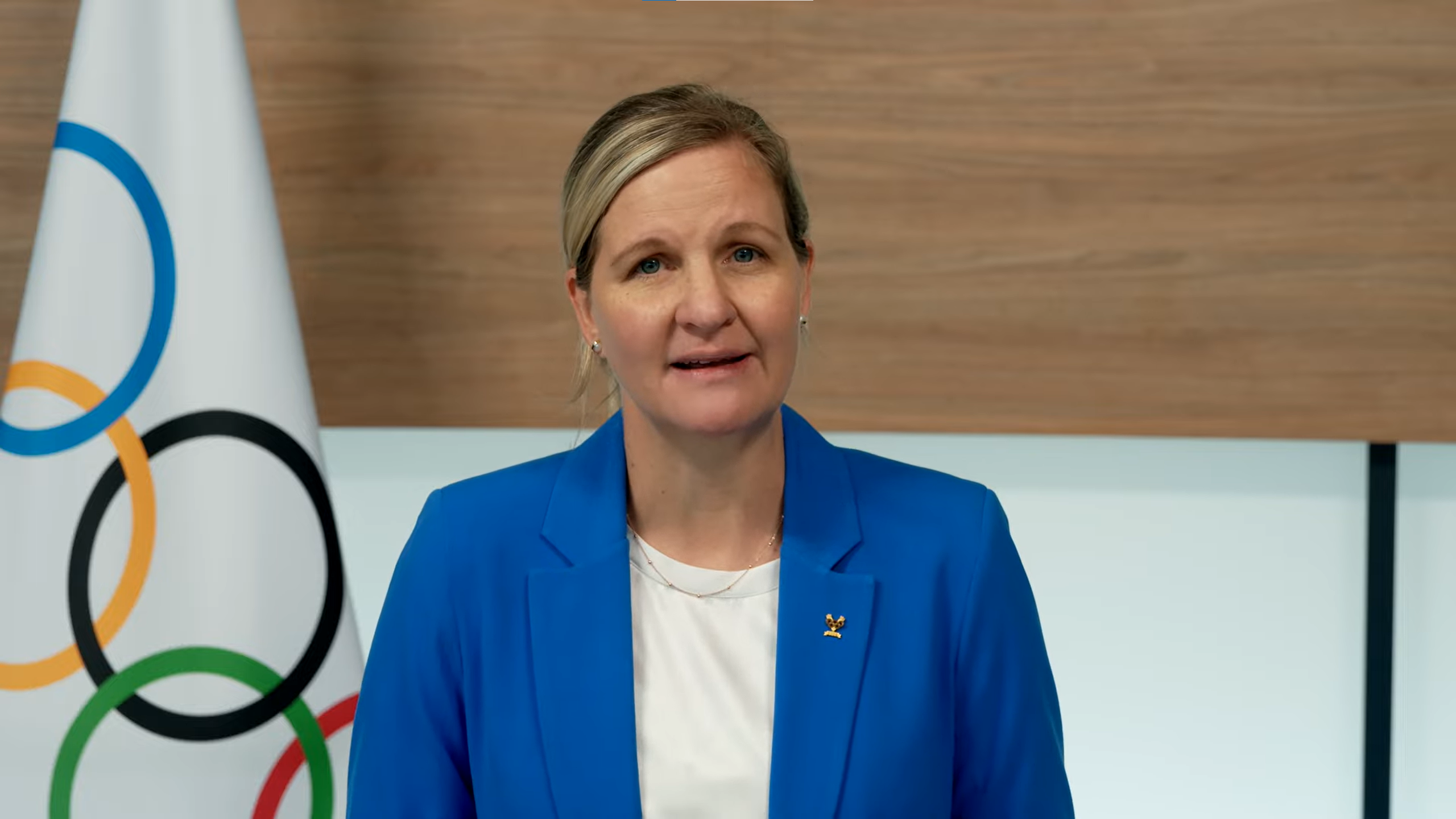
summit programme
Technology is revolutionising the world of sports and cities – from AI and esports to smart venues and digital solutions – unlocking endless possibilities at every level.
software reset
To ensure that we’re all on the same page, we resat our personal software! Gaining a clear understanding of the scientific and engineering concepts related to AI and big data analytics was a great starting point. Exploring the world of esports, how it functions, who is involved and what its boundaries and horizons are, was the second step. Finally, closing – or reducing – the generational gap between those who were born with connected tools and those who adopted it later in life, helped foster shared perspectives. Once this was been achieved, as participants, we are be able to speak the same language. We were connected to each other and begin to explore the infinite possibilities that tech can bring to cities and sport as well as the potential synergies from bringing cities and sport together.
venue revolution
Venues are one emblematic sector where the tech revolution is underway. A visit to a stadium or a sports arena is no longer a single experience limited to watching a sport competition. For spectators and fans, the journey now includes digital tools, entertainment, virtual or augmented reality, interactive environments, immersive experiences, etc. For venue conceptors and managers, tech, AI, and data analytics are integrated into a building or renovation project to cover security, crowd management, accessibility, mobility, and many more aspects. In addition, esports creates its own arenas but also fills ‘traditional’ stadiums with thousands of fans. We explored how the venue revolution is setting new standards in the sport world!
tech for all
New tech is synonymous with endless opportunities for all, from elite athletes to occasional practitioners, from cities to federations, clubs and associations, to optimise sport practice and adapt the sport offer to a targeted audience. Elite athletes’ environments and major events serve as labs to develop specific tools that can be adapted to all actors (top-down approach). On the other hand, local digital initiatives can also be developed on a larger scale (bottom-up approach). These initiatives can include safeguarding measures through dedicated Apps, accessibility and mobility, and climate data to select the best venues in relation to an event calendar, accessibility and mobility, carbon management, etc. We looked at the digitalisation of sport at all levels and for the benefit of all.
e-solutions
Looking for concrete solutions? The 2025 summit offered a toolbox full of tech-related response to the challenges that cities face in their sports and physical activity related policies.
test
Your content goes here. Edit or remove this text inline or in the module Content settings. You can also style every aspect of this content in the module Design settings and even apply custom CSS to this text in the module Advanced settings.
monday, 20 october
19:00 – welcome dinner, signiel seoul, lotte world tower
tuesday, 21 october
master of ceremonies: kelly kim, ceo, je ja ri concepts
decoding the digital lexicon: what do AI, IoT, big data and digitalisation mean?
Let’s press the reset button and update our own personal software! Before exploring how tech & sport interact, this session aimed to bring us all to the same level of understanding of the concepts and tools, so that we could grasp their potential as well as their limitations. Understanding what we were talking about can only make our discussions more relevant!
- lucy mills, founder & chief catalyst, ready sport global
the AI dialogue
An engaging exchange on how the IOC is taking the AI path, to the benefits of the athletes and events.
- sarah walker, ioc member, chair of the AI working group
esports: going beyond stereotypes
Esports is no longer on the sidelines—it’s reshaping sports’ definitions, competition, and performance in the digital age, but, what’s the scope of esports? Does it embrace virtual sport and simulated sports games? Is esports sport? Does esports mean the end of sport? Are gamers athletes? Rather than seeking definitive answers, our goal was to grasp the complexity of the subject, the opportunities it presents and the challenges it poses, beyond usual stereotypes.
- hee jung hong, associate professor in sport, university of stirling
mind the gap & bridge the gap: understanding the youth
The youngest were born in the digital age, with a screen in front of their eyes and a smartphone in their hands. How does this digital era represent a major change in the way sport is conceived and practiced, from the amateur to the athlete, from the small club to the international federation? How has esports deeply changed the youth sports landscape, in terms of accessibility, community creation, as well as career paths and education programmes? How does esports challenge traditional notions of what it means to be an athlete? Technology is a game-changer, and mastering its ‘codes’ is the key to success. How much has technology changed the digital natives? To meet the expectations, desires and practices of the new generation, understanding how they ‘consume’ sport is a prerequisite for action. We learned from the youth, youth experts, and youth-related actors!
- yaewon jin, assistant professor, researcher, ewha womans university
- minseok lee, senior researcher, t1 esports academy
- marieke klösters, director of sports, education & culture, city of rotterdam
- junwon choi, judoka and esports casual player
- hee jung hong, associate professor in sport, university of stirling (moderator)
from theory to practice: the city of espoo’s esports and gamification strategy
It’s a short leap from esports to Espoo. The Finish City of Espoo has decided to explore esports, gaming, gamification, and exercise gaming as opportunities to encourage sport and reduce alarming physical inactivity. Youth and adults alike seem to be attracted by such activities. Espoo could demonstrate that, far from being opposed, sports and e–sports complement each other and share common goals.
- kimmo leinonen, esports planning officer, city of espoo
- oona koivula, project planning officer, city of espoo
sports in the esports era: the twilight zone (at the frontiers of reality)
When sport and virtual sport meet, when stadiums are filled with screens and technology, when athletes compete against each other but not face to face, and without contact, we enter a zone of exploration of the complementarity between these two universes. What is the audience at such events? How are fans mobilised? What is the leverage to go from e-sports and virtual sports to sport practice “in real life”? How are international federations progressively integrating new disciplines, leagues, and championships within their traditional core activities? How are these new categories of athletes defined? A panorama of surprising initiatives helped us to take the pulse of this fast-growing industry.
- filip ljubicic, council member, chair of indoor rowing commission, world rowing
- juliette duchemin, indoor rowing manager, world rowing
- lars vallentin christensen, senior specialist, wonderful copenhagen
- matthew smithson, director of esports and game operations, mywhoosh
- jaerim choi, co-founder and cto, kimcaddie
- cedric vanden bogaerde, executive director, international academy of sport science and technology (moderator)
techtalk series: data & sport
Our world is overrun with data. What do we do with data once collected? How is data compiled, analysed, and treated, so that it can be turned into concrete action? From city data to health or climate data, we explored how data analysis can help us understand the complexity of ecosystems and can become effective decision-making tools.
- hemachandran kannan, vice dean & director, ai research center, woxsen university
- walker ross, academic & director, sport ecology group, university of edinburgh
- chung-sik yun, director, data strategy division, seoul metropolitan government
- lucy mills, founder & chief catalyst, ready sport global (moderator)
19:00 – gala dinner, sebit floating island convention
wednesday, 22 october
master of ceremonies: kelly kim, ceo, je ja ri concepts
the venue revolution: blueprinting the smart stadium experience
Going to the stadium is no longer just about going to see a match or a competition, it’s about living a global and immersive experience. Today’s sport venues compete in technological creativity to offer a journey for spectators and athletes alike. We took a look at a number of venues which, at different levels and to meet different objectives, are integrating technology into their operations. The connection between a stadium and its city is essential. We explored different governance models for smart venues, whether they are directly managed by cities or operated by sports leagues or private entities. How does the upgrade to smart stadiums change the game for cities?
- eric neuburger, general manager, lucas oil stadium
- xinghua liu, head of international relations department, beijing olympic city development association
- masami takahashi, general partner & coo, scrum ventures
- amy crosland, chief operating officer, australian sports technologies network (moderator)
the venue revolution: from designer to consumer
Venues can be screened from different perspectives, from conceptors to consumers, highlighting diverse expectations or motivations. To complement the overview of smart stadium experiences presented in the first session, architects, venue operators, sports team operators as well as fans and consumers, engaged in a panel discussion on smart venues. From security and flow management to on-site consumption, from live analysis of live performances to the provision of ancillary activities, from the integration of sustainability to fan engagement and sponsoring opportunities, smart venues are designed to make the experience unforgettable.
- katherine rowe, vp, client strategy & insights, crowdiq
- tania salarvand, evp of hospitality, sports & entertainment, globant
- peter choi, design principal, architect, hok
- sungmin kim, sports fan & team leader, international education cooperation centre
- peggy tng, regional lead, apac region, global sports innovation centre powered by microsoft (moderator)
digital toolbox: using smart technology to deliver a high-tech experience
Proof by example is often the most effective. The toolbox session is an interactive showcase where innovators, researchers, and practitioners present cutting-edge digital tools, apps, and technologies designed to enhance the world of sport. From performance-tracking platforms and event management systems to community engagement apps and inclusive sport solutions, each presentation highlights how technology is transforming the way we train, compete, or connect through sport. This session offered participants the opportunity to discover practical, ready-to-use innovations and gain insights into their development. Whether you’re a coach, athlete, organizer, or policymaker, the toolbox session was your gateway to the latest digital solutions driving efficiency, inclusion, and excellence in sport and physical activity.
- Seoul’s Fun stations, presented by Kelly Kim, Master of Ceremonies
- KESCAB platform, presented by Stacey Kim, TAFISA
- Vapor P and Papor P, presented on video by Jeongheon Kim, EXPERS Inc.
- Senior health data and prescription system, presented by Hyebin Kim, Vivalabs
- AI-automative live sports production, presented on video by Pixelscope
2025 award smartcities & sport
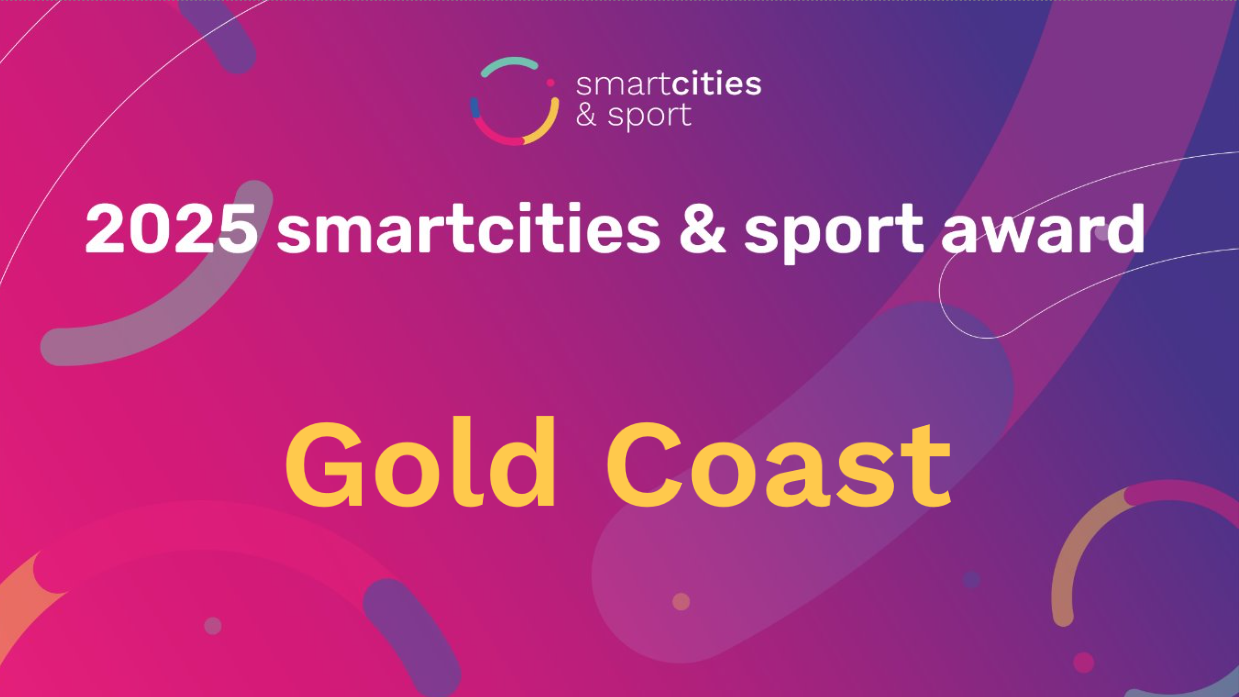
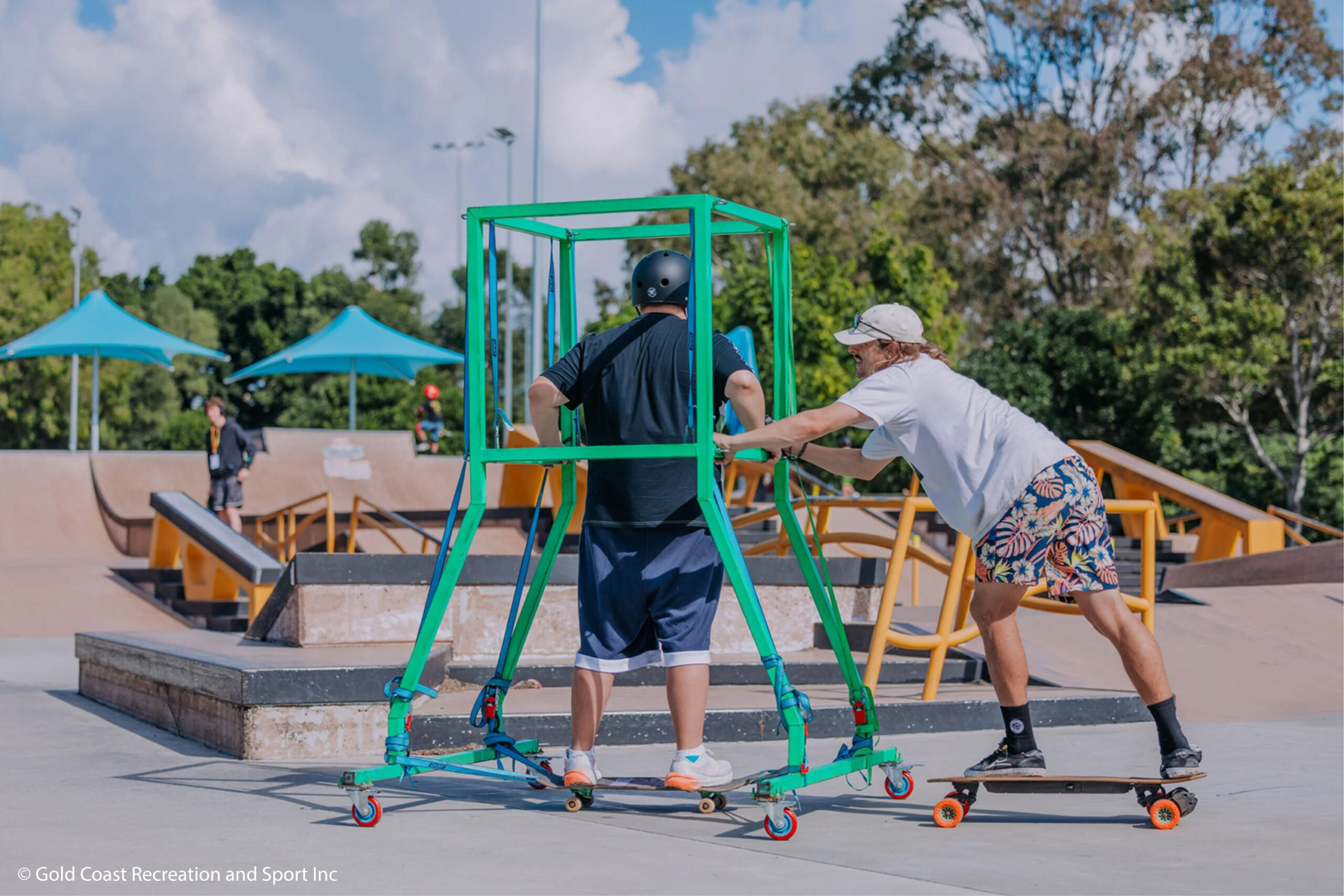
The smartcities & sport award, designed to celebrate an innovative project that has already been successfully implemented and has made a tangible impact through sport in an urban environment.
We are pleased to announce that the City of Gold Coast received the 2025 smartcities & sport award for its Active Inclusion Program – a powerful initiative breaking down barriers for people with disabilities, through mentoring, workshops, and strong community partnerships all year round: a true model of accessibility and community empowerment through sport. More broadly, this type of programme – which aims to make physical activity a way of life for everyone, without exception – fully reflects the spirit of Gold Coast’s Council Plan and Sport and Physical Activity Strategy 2022–2032. Increasing inclusive sport and physical activity opportunities is a city objective that also aligns with the preparation of the Brisbane 2032 permanent legacy for Gold Coast.
Congratulations to the Gold Coast team for their inspiring programme, a true model of accessibility and community empowerment through sport! Click here to learn more.
Check out the two other standout cities in this year’s competition:
Wonderful Copenhagen, through the “Try an Adapted Bike” initiative, invited residents and visitors to experience inclusive mobility firsthand during the Copenhagen Sprint 2025. By pairing participants with disabilities and adapted bike suppliers, the city turned a public event into a platform for accessibility – literally pedalling towards a more inclusive urban future. Discover the legacy case study.
With the City of Wrocław, sport and movement bring people together. From “Let’s Play Together”, fostering integration between Polish and Ukrainian youth, to “Education on the Move”, which turns classrooms into spaces of active learning, Wrocław proves that sport can be shared, taught, and lived every day.
Find more information on their respective websites: Let’s Play Together / Education on the Move
summit speakers
summit venues
Seoul Olympic Park
The Olympic Park is a vibrant space where sports, culture, and leisure come together, preserving the legacy of the 1988 Seoul Olympics. Managed by KSPO, the park features Olympic monuments and sculptures reflecting the event’s message of harmony and progress. Surrounding the historic Mongchon Fortress, it blends history and nature with green spaces, an artificial moat, and World Peace Square. The park is a prime venue for global sports events and concerts, with world-class facilities like KSPO DOME and Olympic Hall. Spanning 1.42 km², it offers a mix of natural beauty and modern infrastructure, easily accessible from downtown Seoul. The Park also hosts the Seoul Olympic Parktel, which has been the venue for the first day of the summit.
Sebit Floating Island Convention
Sebitseom, a cultural complex located on the Han River, offers a unique opportunity to enjoy events with stunning views of the river, where the 1988 Seoul Olympics opening ceremony took place and where regatta events were held. Known for hosting numerous global events, Sebitseom is a key landmark in Seoul, symbolizing the city’s dynamic spirit and innovation. The complex consists of three shining islands, each representing different phases of the day, and includes Yevit, a media art gallery showcasing cutting-edge digital art. As a hub for cultural exchange and global gatherings, Sebitseom provided an ideal setting for events like the smartcities & sport summit, offering a vibrant and inspiring atmosphere for attendees to explore the future of sport.
Lotte world tower
Rising 555 meters with 123 floors, the Lotte World Tower is the tallest building in South Korea and the fifth tallest globally. Its upper levels, home to the unique hotel Signiel Seoul, offer unparalleled panoramic views of Seoul.
We will have the chance to discover the Grand Ballroom situated at the 76th floor of this astonishing building, as it will host this year’s welcome dinner.
Located on the 31st floor of Lotte World Tower, SKY31 Convention is a top‑level, multi‑use conference center offering world-class facilities, panoramic skyline views, and seamless access to Seoul’s premier business complex. It comprises an auditorium, multiple conference rooms, and spacious lounges– ideal for international conferences, banquets, and executive gatherings. Moreover, the second day of the summit was held at this prestigious venue.
Lotte Hotel World
The Lotte Hotel World is the official hotel of the smartcities & sport summit 2025. The hotel is located in Jamsil in Gangnam, Seoul with convenient and easy access to downtown.
The hotel is next to Lotte World Adventure, one of the world’s largest indoor theme parks, Lotte World Mall, Asia’s largest multiplex, and close to the magnificent Lake Seokchon. All these locations come together to create an exquisite view from each hotel room.


